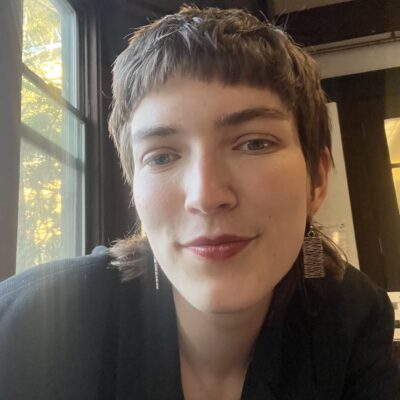Oona Fitzpatrick - Art, Power, and Practices of Identity
After graduating with a double major in American Studies and Sociology, Oona began work as a mitigation investigator at Community Resource Initiative. As a mitigator, Oona works alongside people facing the death penalty and their families to tell holistic, life-affirming stories that challenge the singular narrative of justice imposed by the state.
Area of Concentration Courses
Sociol 149 P: Sociology of Policing
Sociol 140: Political Sociology
Africam 135C: Novels of Toni Morrison
Africam 140: Pain, Pleasure, Power: Black Queer Music, Porn, and Performance
English 133T: Art of the Black Diaspora
Thesis
Rhizomes of Resistance: The Indigenous Reclamation of Alcatraz and Moms 4 Housing as Sites of Commoning
Oona’s honors thesis explores the 1969-71 Indigenous reclamation of Alcatraz, and Moms 4 Housing, the 2019 reclamation of a vacant house in Oakland by Black moms, as examples of commoning which disrupt the racial capitalist engine of displacement and prefigure a world predicated upon connection. The project builds upon critical scholarship in order to understand the commons as 1) a physical place of shared subsistence outside of state control; 2) a practice built through relationships of care, or commoning; 3) structurally threatened by, and prefiguring a world beyond, racial capitalism; 4) already all around us as undercommons, impossible to enclose in its entirety; and 5) enacting a queer temporality, wherein the past and future are joined in the present. Drawing on the metaphor of the rhizome, a horizontal root system, Oona proposes the framework of a rhizomatic commons, wherein each project of commoning builds an awareness of our shared commonality, and thus nourishes a deeper web of resistance. Although Alcatraz and Moms 4 Housing are separated by fifty years, their enactment of commoning practices echo one another in their emphasis on emplacement through relationship-building with the land, one another, and the wider community. Ultimately, when we understand relationships as the lifeblood of the commons, it becomes clear that material enclosure does not end the project of commoning, as it is carried forward in the rhizomatic commons.
